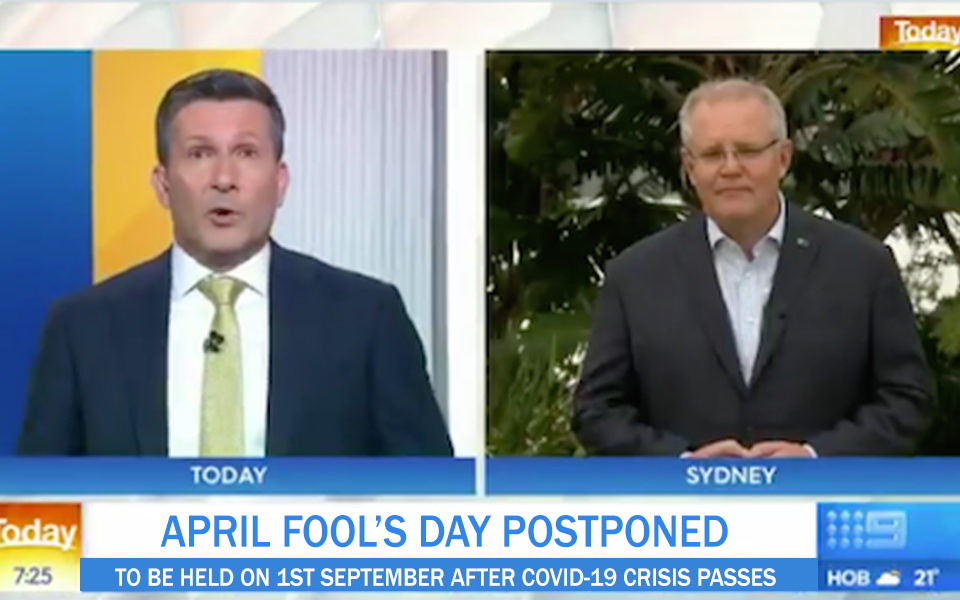 Breaking a continuous 438 year history of pranks and practical jokes, April Fools Day has been postponed until 1 September this year due to COVID-19.
Breaking a continuous 438 year history of pranks and practical jokes, April Fools Day has been postponed until 1 September this year due to COVID-19.
“It is a terrible shame, and is going to put a lot of our staff out of work, but it just had to be done,” said François de Blague, head of the International April Fool’s Day Federation (IAFDF) based in Geneva, Switzerland.
In Australia, government officials have confirmed and hesitantly backed the move.
“Look, this is not the time for people to be announcing there is a disease infecting spaghetti trees causing already panicked people to rush out to supermarkets to try and buy more spaghetti from the already empty shelves,” said an unnamed spokesperson, on behalf of an unnamed spokesperson, on behalf of the Prime Minister’s office.
“Just stay calm and look forward to 1 September when we have all the prankstering and hilarity we want. It’s only five months away”.
It is believed that April Fool’s Day began in 1582, when France switched from the Julian calendar to the Gregorian calendar, as called for by the Council of Trent in 1563.
People who were slow to get the news or failed to recognize that the start of the new year had moved to January 1 and continued to celebrate it during the last week of March through April 1 became the butt of jokes and hoaxes.
The day cemented itself into our yearly calendar when in the following year, 1583, the government in Britain announced it was turning Big Ben digital.
This caused great hilarity across the nation, and some sense of confusion, as Big Ben was not actually built until 1843.
In the 20th century, pranks have been an annual event across the globe with people falling for the most absurd tales.
Notable jokes include the landing of a UFO in London (1989), the body of the Loch Ness Monster being discovered (1972) and Donald Trump being elected President of the United States (2016).
The long history of hilarity is little comfort to hundreds of workers from the IAFDF who will be packing up their desks and heading to join the long lines of people at the Schöggeli, Switzerland’s equivalent to Centrelink.



